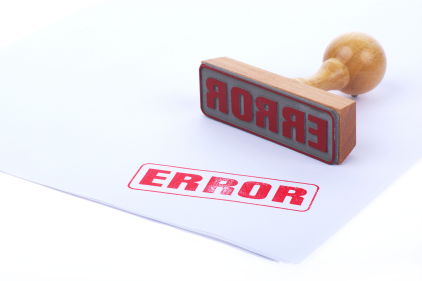Errors and Omissions (E&O) Insurance provides necessary financial protection to any company that provides services to clients, especially when that service involves recommending a purchase of another company’s product or service. Travel Agent E&O Insurance covers claims for professional services provided, including booking of an accommodation in a location which is not safe and booking of travel reservations on routes which have been discontinued. Not all policies provide the same coverage. Here are five key points agents should be looking for.
Where Does Coverage Apply?
Most insurance policies written in the United States cover occurrences within the US, its territories and possessions, and Canada. Since travel agents can book travel anywhere in the world, most travel agent E&O policies provide worldwide coverage. It is important to ensure that the insurance applies to occurrences worldwide, as well, for suits that might be filed outside the US.

What Types of Claims are Covered?
A quality Travel Agent E&O Insurance policy for travel agents should include coverage such as Professional Liability, Bodily injury, Property Damage, Personal Injury, and Hired and Non-owned auto. Bodily injury and Property Damage coverage protects the agency and its employees from claims arising from injury, death, or damage to the traveler’s property while traveling. Personal Injury covers losses travelers might suffer due to libel, slander or false arrest or imprisonment. Coverage for Hired and Non-Owned auto should not be overlooked by a travel agency since it will provide protection from losses arising from third party limousine or bus transportation contractors.
Claims-Made Form v. Occurrence Form
A claims-made insurance policy will provide coverage during the policy term in which a claim is presented to the insurance company. Occurrence forms provide coverage for claims arising out of occurrences that happened during that policy term. This is an important distinction since it is possible for a claim to be presented for some event that happened a year or more ago. It is generally accepted that the occurrence form is preferable because there is a lower change of coverage gaps which can arise when insurance coverage is changed from one company to another or when an agency goes out of business.
How Are Defense Costs Applied?
Some insurance policies deduct defense costs from the coverage limit reducing the money available to pay damages. It is possible to get a policy which provides unlimited coverage for defense and does not reduce the limit available to pay a claim. Often the insurance company will apply the policy deductible to the defense costs, making an agency responsible for the first money paid out in any claim. Some companies will only apply the deductible to a loss if damages are paid out. This type of insurance policy is called “first dollar defense.”
What Kinds of Losses are Excluded?
Agents should not overlook exclusions when deciding which insurance policy to buy. There are a few types of claims typically excluded from travel agent insurance policies. Advertising Injury, which includes copyright or trademark infringement. Losses due to misquotation of prices, fees, or cancellation provisions are also typically excluded. Losses arising from the recommendation and sale of any insurance policy be it travel insurance or accident insurance.
Even if a claim is unfounded, it needs to be handled. Through the purchase of insurance, an agency will have experienced loss control and legal assistance to resolve the matter. Such financial protection is invaluable to an agency that could be ruined by one loss, giving agents peace of mind to focus on business.
